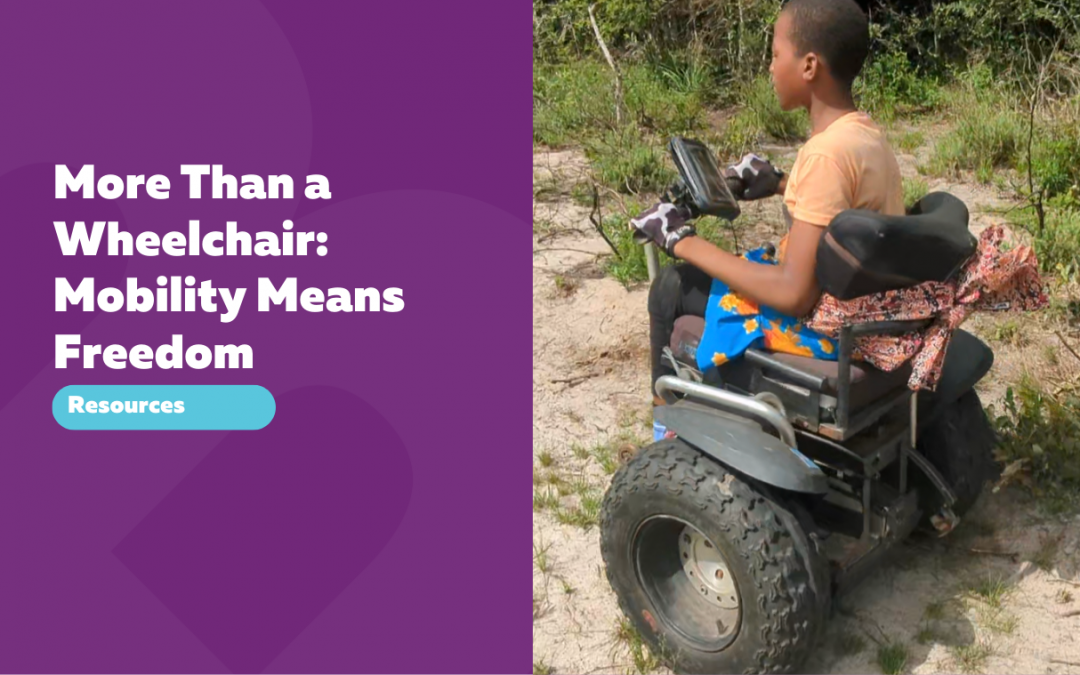
by Tessa Van Rensberg | Mar 4, 2026 | Resource Hub
On International Wheelchair Day, 6-year-old Elijah received something life-changing.
Not just a wheelchair.
Freedom.
After outgrowing his old chair, Elijah’s family turned to their community to help fund a lightweight, custom-fit wheelchair designed specifically for his growing body and active spirit. Within weeks, donors came together to raise over R40,000 — ensuring that Elijah could return to school safely, move confidently, and keep up with the speed he loves so much.
But Elijah’s story highlights something many people don’t realise:
Not all wheelchairs are created equal.
And for children especially, the right chair is not a luxury — it’s a necessity.
Why a “Standard” Wheelchair Often Isn’t Enough for a Child
It’s easy to assume that any wheelchair will do the job.
But paediatric wheelchairs are fundamentally different from generic or hospital-issued chairs.
Children are still growing. Their bodies change rapidly. Their posture, spine alignment, muscle tone, and balance all require careful support.
A poorly fitted wheelchair can:
-
Cause long-term spinal damage
-
Create pressure sores
-
Limit independence
-
Increase risk of tipping or injury
-
Restrict participation in school and sport
-
Lead to secondary health complications
Elijah’s previous chair was heavy, unstable, and unsafe at speed — and for a six-year-old who loves independence, that matters.
A custom or lightweight paediatric wheelchair is designed to:
-
Match the child’s exact measurements
-
Offer better balance and centre of gravity
-
Support posture and muscle development
-
Allow safe mobility at school and outdoors
-
Grow or adjust with the child
For children, mobility is development.
Mobility is confidence.
Mobility is participation.
Environmental Barriers Matter Too
Elijah’s story isn’t unique.
Earlier this year, Sikholelwe’s campaign — Keep Her in School: The Segway Challenge — showed another side of the same issue.
Living in a rural area with thick beach sand and no accessible transport, Sikholelwe’s standard wheelchair simply couldn’t cope. Her mother carried her 3km to school daily. Without a solution, she risked dropping out entirely.
The answer wasn’t just “a wheelchair.”
It was an adapted Segway mobility solution, custom-built through AddMobility in the UK — a device capable of navigating sand, rural terrain, and long distances independently.
Her campaign raised over R161,000 to secure that life-changing equipment.
These stories show that mobility needs are not one-size-fits-all.
Environment matters.
Terrain matters.
Growth matters.
Safety matters.
And sometimes the right solution costs more upfront — but saves years of limitation.
Why Paediatric & Custom Wheelchairs Cost More
Custom or adapted chairs often include:
-
Lightweight aluminium or titanium frames
-
Custom seating systems
-
Adjustable growth features
-
Postural support cushions
-
Anti-tip safety mechanisms
-
Specialist wheels for terrain
-
Imported parts
In South Africa, public healthcare often cannot cover these specialised options. Medical aids may only partially fund them — leaving families to bridge the gap.
That gap can feel overwhelming.
But it’s not impossible.
Where to Find Paediatric or Custom Wheelchairs in South Africa
If you’re researching mobility options, here are helpful starting points:
Local & International Suppliers
-
Shonaquip Social Enterprise (SA) – Specialists in posture-support wheelchairs for children
-
CE Mobility (SA) – Distributors of customised and lightweight mobility equipment
-
Consolidated Mobility (SA) – Paediatric and complex rehab mobility solutions
-
AddMobility (UK) – Custom-built mobility systems (including Sikholelwe’s adapted Segway chair)
Nonprofit Support Organisations
-
QuadPara Association of South Africa (QASA)
-
CHOC Childhood Cancer Foundation (if linked to oncology cases)
-
Shonaquip Foundation outreach programmes
Always consult with:
-
An occupational therapist
-
A rehabilitation specialist
-
A paediatric physiotherapist
Proper assessment ensures the right fit.
How to Raise Funds for a Wheelchair on BackaBuddy
Wheelchair campaigns perform particularly well on BackaBuddy because:
Here’s how to approach it:
1. Explain Why the Current Chair Isn’t Suitable
Be specific. Growth? Terrain? Safety? Posture?
2. Break Down the Costs
Transparency builds trust.
3. Share Photos or Video
Show the current limitations. Show the child’s personality. Let donors see who they’re supporting.
4. Highlight Independence, Not Limitation
Elijah’s campaign wasn’t about disability — it was about freedom and independence.
That shift matters.
5. Share Milestones
-
25% funded
-
Order placed
-
Chair received
-
First day back at school
Updates keep momentum alive.
More Than Mobility
When Elijah received his new wheelchair on International Wheelchair Day, it wasn’t just symbolic.
It was transformative.
And when Sikholelwe gained access to terrain that once excluded her, it wasn’t just transport.
It was access to education.
The right wheelchair:
Mobility is not about equipment.
It’s about access.
Final Thought
If your child — or someone in your community — needs a specialised wheelchair, know this:
You are not alone.
Thousands of South Africans have rallied behind mobility campaigns on BackaBuddy, proving that when the need is clear and the impact is visible, people respond.
Because every child deserves a chair that keeps up with their spirit.
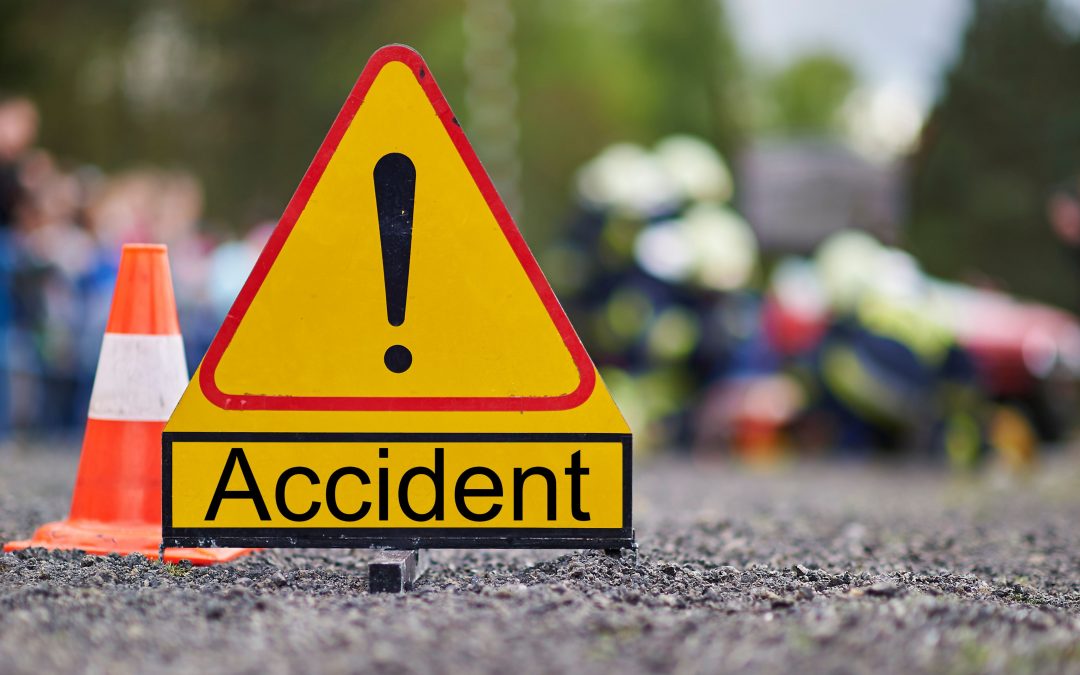
by Simbulele Jezile | Jan 13, 2025 | Free Resources
Emergencies can happen when we least expect them, and knowing who to call can be lifesaving. Whether it’s a medical crisis, safety concern, or emotional distress, having the right numbers at hand can make all the difference.
Here’s a comprehensive list of South African emergency hotlines, apps, community groups, and organisations, updated with the latest information.
National Emergency Numbers
- National Emergency Line (Ambulance, Fire, Police): 112 (from any mobile)
- Police Emergency Services: 10111
- Ambulance and Fire Brigade: 10177
Medical Emergency Services
- ER24 Emergency Medical Services: 084 124
- Netcare 911: 082 911
- Life Healthcare Emergency Line: 0860 532 532
Crime and Safety Hotlines
- Crime Stop (Report Crime Anonymously): 08600 10111
- Childline South Africa (Child Protection and Abuse): 0800 055 555 (childlinesa.org.za)
- GBV Command Centre (Gender-Based Violence Support): 0800 428 428 or SMS ‘HELP’ to 31531
Mental Health and Emotional Support
- Suicide Crisis Line: 0800 567 567
- Lifeline South Africa (Emotional Support): 0861 322 322 (lifelinesa.co.za)
- South African Depression and Anxiety Group (SADAG) Helpline: 0800 456 789 (sadag.org)
Family and Child Welfare
- Child Welfare South Africa: 0861 424 453
- Stop Human Trafficking Helpline: 0800 222 777
Substance Abuse Support
- Alcoholics Anonymous (AA): 0861 435 722 (aasa.org.za)
- Narcotics Anonymous (NA): 083 900 6962 (na.org.za)
- South African National Council on Alcoholism and Drug Dependence (SANCA): 011 892 3829 (sancanational.org)
Disaster and Relief Services
Animal Emergencies
- SPCA (Animal Emergencies): 011 907 3590
- NSRI (Beach Rescue): 082 911
- SANParks Emergency (National Parks Rescue): 013 735 0197
- Snake Rescue Hotline: 072 809 5806
Poison Control and Substance Abuse Support
- Poison Information Centre: 0861 555 777
Traffic and Roadside Assistance
- AA Roadside Assistance: 0861 000 234
- RTMC (Road Traffic Management Corporation): 0861 400 800
Gender and Community Support Hotlines
- Tears Foundation (Gender-Based Violence Support): 010 590 5920
- LGBTQ+ Support Hotline: 021 422 0255
Homeless Shelters and Support
- The Haven Night Shelter (Western Cape): 021 425 4700
- MES (Gauteng and Western Cape Homeless Support): 011 725 6531
- Durban North Shelter: 031 312 3147
Additional Community and Humanitarian Support
- Local Community Watch Groups: Contact your local neighbourhood watch
- Helplines for the Elderly (Age-in-Action): 0800 333 231
- Missing Persons Hotline (Missing Children SA): 072 647 7464
- Human Trafficking Hotline (A21 South Africa): 0800 222 777
Emergency Apps and Community Groups
- Namola (Mobile Safety App): namola.com – Real-time emergency assistance
- mySOS (Emergency App): mysos.co.za – GPS-linked support for medical, security, and roadside emergencies
- Community Policing Forums (CPFs): Check your local CPF group on Facebook for area-specific safety updates
When You Need Crowdfunding Support
In addition to emergency services, sometimes a crisis requires financial assistance for medical bills, disaster relief, or emotional support resources. BackaBuddy offers a trusted crowdfunding platform where you can create a campaign to raise funds quickly and safely from your community. Whether you’re seeking help or want to contribute to someone in need, crowdfunding can make a meaningful difference.
Start a campaign
Essential Tips:
- Save these numbers on your phone under ‘Emergency Contacts.’
- Share this list with family and friends to ensure everyone is prepared.
- If you’re unsure who to call, dial 112 from any mobile phone for immediate assistance.
For more support resources and ways to make a difference, visit the BackaBuddy Impact Village for free, helpful articles.
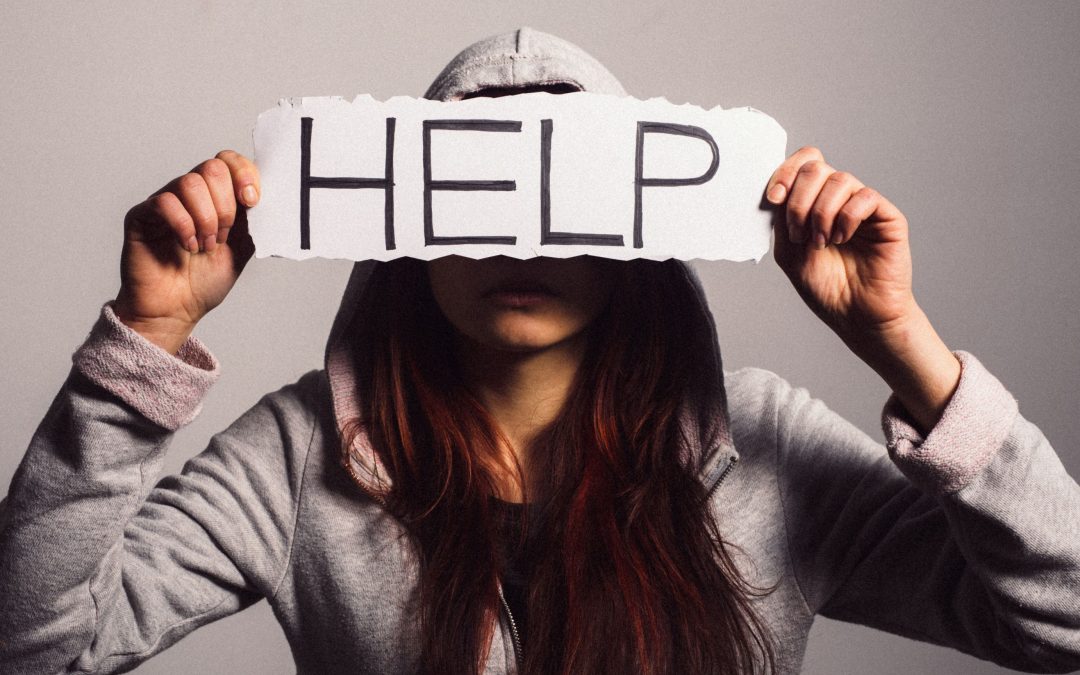
by Simbulele Jezile | Nov 29, 2024 | Free Resources
In South Africa, gender-based violence (GBV) remains a devastating reality, with one in three women experiencing physical or sexual violence in their lifetime and over 40% of children enduring abuse before they reach adulthood. Despite its prevalence, many cases remain unreported, leaving survivors without justice or support.
The 16 Days of Activism Against Gender-Based Violence, observed globally from 25 November to 10 December, is a crucial time to raise awareness, provide support, and foster meaningful change.
Here’s how you can better understand, engage, and take actionable steps to address violence against women and children.
Understanding Gender-Based Violence
Gender-Based Violence (GBV) refers to harm directed at individuals based on their gender. This includes physical, emotional, sexual, and economic abuse, often rooted in power imbalances and cultural norms that perpetuate inequality.
This year’s theme, UNITE! Activism to End Violence Against Women and Girls, highlights the collective responsibility to create safer and more equitable communities.
Understanding Myths About Abuse: Why We Must Avoid Victim-Blaming
Victim-blaming silences survivors and perpetuates harmful stereotypes. Common myths to challenge include:
- “Why didn’t they leave?” Leaving is often dangerous and complicated by fear, finances, or children.
- “They provoked it.” Abuse is the abuser’s choice—no one deserves violence.
- “It only happens in certain communities.” GBV transcends class, race, and geography.
Learn more about dismantling these myths at SaferSpaces.
How to Get Help
Hotlines for Support
If you or someone you know needs immediate assistance, these hotlines offer confidential, 24/7 support:
- Lifeline South Africa: 0861 322 322
- GBV Command Centre: 0800 428 428 or dial 120 7867# from a cellphone.
- Childline South Africa: 0800 055 555
- Tears Foundation: SMS “HELP” to 1347355 for nearby support services.
- South African Police Service (SAPS): 10111 for emergencies.
For additional resources, visit Tears Foundation.
Safe Shelters for Those in Need
If someone is in immediate danger, reaching out to a local shelter can be life-saving. Here are trusted organisations offering support:
Practical Tips for Community Action
Recognizing Signs of Abuse
Look out for these signs among friends or neighbours:
- Unexplained injuries: Bruises, burns, or fractures with unclear explanations.
- Behavioural changes: Withdrawal from activities or excessive fear.
- Isolation: Being prevented from seeing loved ones.
If you notice these signs:
- Start a conversation: Ask gently if they need help.
- Offer resources: Share hotline numbers or connect them to local organisations.
Setting Up Community Support Networks
Follow these steps to create a supportive neighbourhood network:
- Gather neighbours: Organize a meeting to discuss GBV.
- Partner with experts: Collaborate with NGOs for training.
- Establish safe zones: Create designated homes or spaces for survivors.
- Spread awareness: Host events, distribute flyers, and share resources.
For guidance, visit SaferSpaces Community Toolkit.
Start a Campaign
Crowdfunding can provide financial relief to survivors of abuse. If you want to make a difference, consider starting a campaign on BackaBuddy. Funds raised can support survivors with legal fees, housing, counselling, and more.
Visit BackaBuddy to start your campaign today.
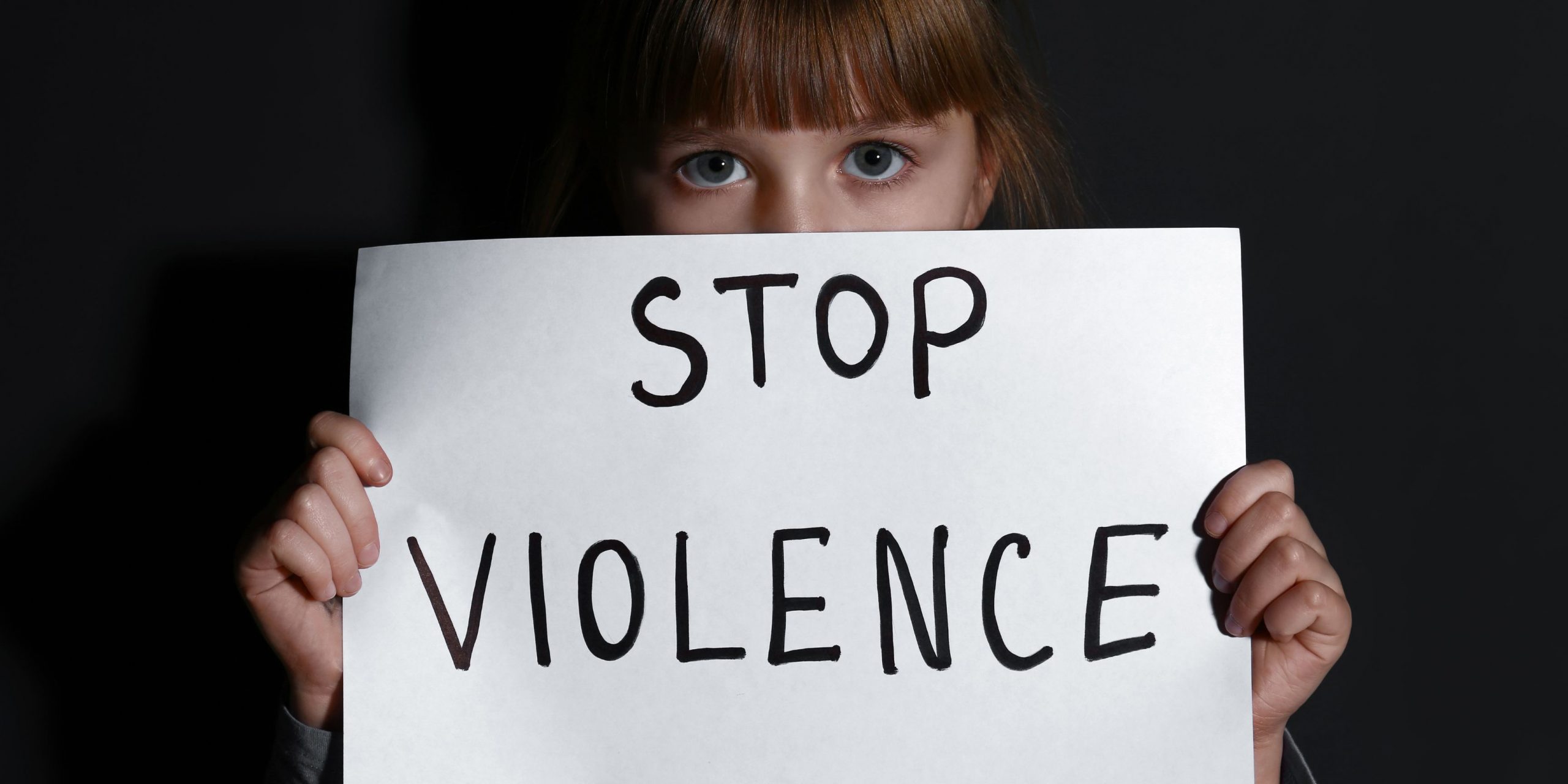
Digital Advocacy Tools
The digital age provides powerful tools to support survivors and amplify advocacy efforts.
Apps to Support Survivors
- Safe Place: Crisis response and shelter information.
- bSafe: Personal safety app with an SOS button and location sharing.
- Bright Sky SA: Offers GBV resources and a risk assessment tool.
Templates for Social Media Advocacy
Amplify the message by using these templates:
Template 1:
🚨 It’s time to take a stand!
This #16DaysOfActivism, let’s UNITE to end violence against women and children.
💜 Share resources, support survivors, and be part of the change!
16 Days of Activism: Your Guide to Support, Hotlines, and Actions to End GBV – BackaBuddy
Template 2:
💔 1 in 3 women face GBV in their lifetime. Let’s change this. Speak out, donate, or volunteer to support survivors.
16 Days of Activism: Your Guide to Support, Hotlines, and Actions to End GBV – BackaBuddy
For more digital tools, visit End GBV Digital Tools.
Start the Healing Journey
For survivors of abuse, healing is a personal journey that takes time and support. Here are some practical steps to begin:
- Seek Professional Help
Therapists and counsellors trained in trauma can provide a safe space to process emotions and develop coping strategies.
Free Services: Explore resources like LifeLine SA or Sadag.
- Build a Support System
Surround yourself with trusted friends, family, or support groups who can provide encouragement and understanding.
Support Groups: Organisations like POWA and TEARS Foundation run survivor support programs.
- Focus on Self-Care
- Meditation and Mindfulness: Apps like Calm or Headspace offer guided exercises to manage anxiety.
- Journaling: Writing about your experiences can help process emotions and track progress.
- Reconnect with Hobbies
Rediscover activities that bring joy, whether it’s art, music, gardening, or sports.
- Set Boundaries
Learn to prioritize your needs and create boundaries that protect your emotional and physical well-being.
For additional tools and inspiration, visit Healing Resources from End GBV.
How to Get Involved
During 16 Days of Activism, take steps to raise awareness and promote change:
- Attend marches or events in your area.
- Volunteer with GBV-focused organisations.
- Share information on social media.
- Donate to trusted charities supporting survivors.
Charities to Support
Consider donating to or volunteering for these organisations making a significant impact in the fight against GBV:
- Women for Change: Empowering women and advocating for gender equality. Support their BackaBuddy Campaign.
- Tears Foundation: Providing support services to victims of abuse. Support their BackaBuddy campaigns.
- POWA (People Opposing Women Abuse): A grassroots organisation fighting for justice and safety for women. Support their BackaBuddy Campaign.
Together, we can challenge violence, support survivors, and build a safer world for women and children.
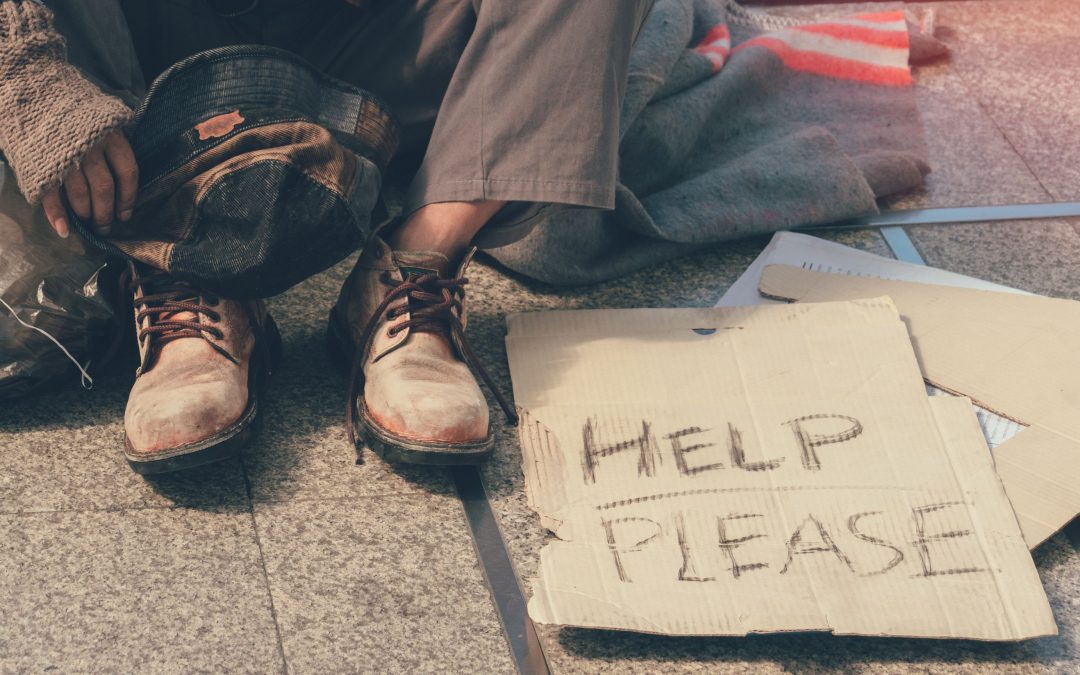
by Simbulele Jezile | Oct 9, 2024 | Free Resources
Homelessness in South Africa is a growing concern, impacting individuals and families across all provinces. At BackaBuddy, we understand the importance of providing resources and support to those in need. This guide offers insights on supporting loved ones who may be experiencing homelessness, how to communicate compassionately, and a comprehensive list of shelters across South Africa.
Understanding Stigmas and Causes of Homelessness
Addressing homelessness requires empathy and awareness of the many factors contributing to it. Unfortunately, some stigmas persist that can prevent effective support and understanding. Here’s what you need to know:
- Common Causes
- Economic Hardships: Job loss, low wages, or insufficient affordable housing are significant contributors.
- Health Issues: Both physical and mental health challenges can affect a person’s ability to maintain employment or stable housing.
- Family Disruption: Domestic violence, family conflict, or loss of a family member can lead individuals to homelessness.
- Lack of Support Services: Without access to mental health care, job training, or rehabilitation services, many struggle to regain stability.
- Common Stigmas
- Laziness or Lack of Motivation: Many believe those experiencing homelessness are unwilling to work, overlooking systemic challenges they face.
- Substance Abuse: Although addiction may contribute to homelessness for some, many affected individuals struggle with complex mental health and economic issues.
- Criminal History: A past conviction can limit access to stable employment or housing, pushing some into homelessness.
How to Support a Loved One Experiencing Homelessness
Supporting someone facing homelessness can be challenging, but small, meaningful actions can make a big difference. What can you do?
- Listen with Empathy
Approach conversations with openness and empathy. Just being present can help them feel valued and less isolated.
- Offer Practical Assistance
- Provide essential items like a meal, warm clothing, hygiene products, or transport fare to meet immediate needs.
- Support them through fundraising on platforms like BackaBuddy, where crowdfunding campaigns can help secure essentials, temporary housing, or job training resources.
- Encourage Steps Forward
Offer hope by encouraging small, manageable steps toward stability, such as exploring job training or reaching out to shelters for transitional housing.
Communicating with Respect and Compassion
When speaking to someone who is experiencing homelessness, an empathetic, respectful approach can make all the difference. Here’s how:
- Be Respectful: Address them as an equal, using their name if known.
- Listen Actively: Let them share without interrupting or judging.
- Ask Open-Ended Questions: Invite them to share what kind of support would be most helpful.
- Offer Help, Not Solutions: Ask how you can assist instead of assuming what they need.
- Respect Boundaries: Recognize their need for privacy and personal space.
- Show Compassion: Sometimes just knowing someone cares can make a difference.
Legal Rights of Homeless Individuals
In South Africa, there are rights in place to protect and support those experiencing homelessness. Being aware of these can provide some relief:
- Access to Shelter: Municipalities are encouraged to provide emergency shelter to those in need.
- Right to Dignity and Privacy: The South African Constitution safeguards dignity and privacy for everyone, regardless of their living situation.
- Access to Health and Social Services: Free healthcare and emergency housing assistance are available for those in crisis.
Immediate Resources for Those in Crisis
In times of crisis, knowing where to turn for help can be life-changing. If someone is experiencing homelessness or a crisis, here’s where they can get help:
Emergency Contacts
- Police / Ambulance: 10111
- National Gender-Based Violence Hotline: 0800 428 428
- Suicide Crisis Line: 0800 567 567
- Lifeline South Africa: 0861 322 322 (counseling services)
Mental Health Support
Job Training and Skills Development
- YES (Youth Employment Service): Employment experience for youth, enhancing employability.
- SETA Programs: Free training programs in various industries. Visit the SAQA SETA Program Page for more information.
Shelters Across South Africa
Providing safe shelter is essential. Below is a list of shelters in South Africa that offer housing, food, counseling, and other supportive services.
| No. |
Area |
Name of Shelter |
Email |
Phone Number |
| 1 |
Port Elizabeth |
Port Elizabeth Shelter |
[email protected] |
041 484 0511 |
| 2 |
East London |
East London Shelter |
[email protected] |
043 722 6166 |
| No. |
Area |
Name of Shelter |
Email |
Phone Number |
| 1 |
Bloemfontein |
Bloemfontein Night Shelter |
[email protected] |
051 430 7601 |
| 2 |
Welkom |
Welkom Shelter |
[email protected] |
057 352 0936 |
| No. |
Area |
Name of Shelter |
Email |
Phone Number |
| 1 |
Polokwane |
Polokwane Night Shelter |
[email protected] |
015 292 4620 |
| 2 |
Thohoyandou |
Thohoyandou Shelter |
t[email protected] |
015 962 5050 |
| No. |
Area |
Name of Shelter |
Email |
Phone Number |
| 1 |
Kimberley |
Kimberley Shelter |
[email protected] |
053 831 0371 |
Getting Involved Locally
Homelessness can feel overwhelming, but local efforts make a difference. Here’s how you can help:
- Volunteer at Shelters: Offer time or skills to support local shelters.
- Organize Donation Drives: Collect essentials like blankets, hygiene products, and clothing.
- Advocate for Change: Engage with community leaders to promote affordable housing, healthcare, and job programs.
Be a Lifeline: Support, Donate, or Champion the Cause
- SuperTroupers Campaign: Donate here to support vital resources for individuals and families in need.
- PMB Homeless Network: Become a Champion and join a movement dedicated to transforming lives.
If you’re looking for more ways to get involved or want to learn about additional resources, visit BackaBuddy and become part of the change.
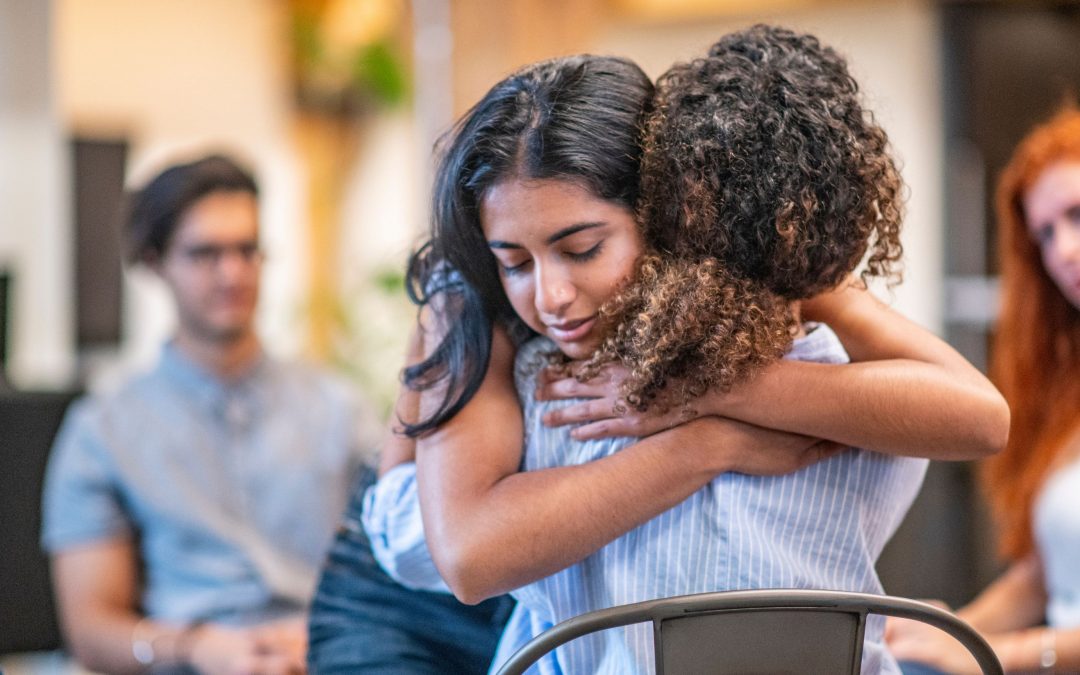
by Simbulele Jezile | Aug 30, 2024 | Free Resources
Grief is a complex emotional response to loss, often associated with the death of a loved one, but it can also arise from other significant life changes. The process of grieving is deeply personal, varying greatly from one person to another. Understanding grief, how to handle it, and how to support others through it can make a significant difference in navigating this challenging experience.
What is Grief?
Grief is an intense emotional experience that encompasses a range of feelings such as sadness, anger, guilt, and even relief. It’s not a single emotion but rather a process that unfolds over time, often in stages. These stages—denial, anger, bargaining, depression, and acceptance—aren’t linear, and not everyone experiences all of them.
How to Process Grief
Processing grief involves allowing yourself to feel the emotions without judgement. It’s important to find healthy outlets for your grief, whether through talking with trusted friends or family, engaging in creative expression, or seeking professional help. Here are some approaches that may help:
- Talk About Your Feelings: Sharing your emotions with someone you trust can lighten the burden. It could be a friend, family member, or a professional counsellor.
- Seek Professional Help: Grief counselling or therapy can provide you with tools to navigate your feelings and work through your grief in a healthy way. Organisations like South African Depression and Anxiety Group (SADAG) offer free counselling services that can be incredibly beneficial during this time.
- Take Care of Yourself: Ensure you’re eating well, getting enough sleep, and engaging in gentle physical activity. Taking care of your physical health can also help you manage emotional stress.
How to Support Someone Through Grief
Supporting someone in grief involves offering a listening ear and being present without trying to “fix” their pain. It’s about acknowledging their loss and offering comfort in ways that respect their grieving process.
- Listen and Be Present: Sometimes, just being there and listening is the most supportive thing you can do. Avoid giving advice unless asked; instead, offer a listening ear.
- Offer Practical Help: Grief can make even simple tasks feel overwhelming. Offering to help with everyday tasks, such as cooking or errands, can be a significant relief.
- Suggest Resources: Encourage them to seek support from professional organisations, such as LifeLine South Africa or Hospice South Africa, which provide counselling and support services for those dealing with loss.

Running an “In Loving Memory” Campaign on BackaBuddy
Honouring a loved one’s memory through a crowdfunding campaign can be a meaningful way to channel grief into action. BackaBuddy allows you to create a campaign in memory of someone, raising funds for causes they cared about or that reflect their passions and values. This not only preserves their legacy but also brings together a community of supporters who share in your loss and want to contribute positively.
How to Create a Campaign:
- Sign Up: Visit BackaBuddy and create an account.
- Choose a Cause: Decide on a cause that reflects your loved one’s passions or values.
- Tell Their Story: Share what made your loved one special and why this cause is meaningful. Include photos, videos, and updates to keep supporters engaged.
- Share Widely: Use social media, email, and word of mouth to spread the word about your campaign.

Additional Resources for Grief Support
Link to Articles About Grief
For those looking to delve deeper into understanding and processing grief, here are some insightful articles:
- Coping with Loss: Navigating the Journey Through Grief
This article offers practical strategies and compassionate guidance for navigating the journey of grief and finding healing. Read More
- How to Be There for Someone Who’s Grieving
This article provides practical tips and guidance on how to support a grieving friend or family member with compassion and understanding. Read More
- The Five Stages of Grief Explained
This article offers a clear explanation of the five stages of grief and how they might manifest differently for each individual. Read More
Apps for Grief Support
In today’s digital age, several apps can offer comfort, resources, and community support for those grieving:
- GriefWorks – An app that offers daily tips, journaling prompts, and guided meditations designed to help you process grief at your own pace.
- My Grief Angels – This app connects you with others going through similar experiences, offering peer support and resources.
Mindfulness for Grief – Focuses on mindfulness practices specifically tailored for those grieving, helping you find peace in difficult times.
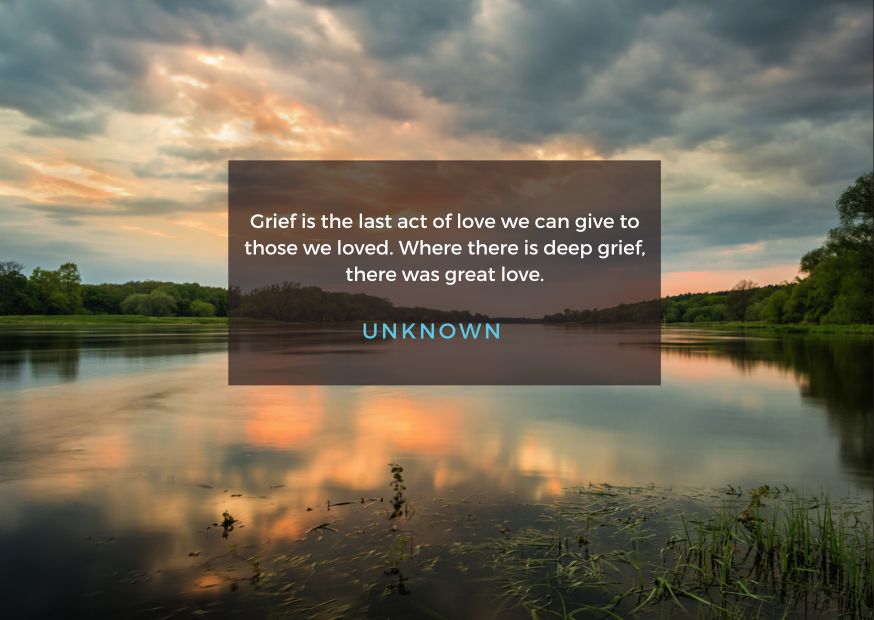
Free Resources for Grief Support in South Africa
Accessing support during grief is crucial, and there are several resources in South Africa that can provide help at no cost:
- SADAG: Offers free counselling services and support groups for those dealing with grief and other mental health challenges.
- LifeLine South Africa: Provides a 24-hour crisis helpline and counselling services for individuals dealing with grief and other crises.
- Hospice South Africa: Offers palliative care and bereavement support services across the country, helping families navigate the complexities of loss.
These organisations can provide valuable support, whether you’re seeking help for yourself or looking to support someone else through their grief.
For more information on creating a memorial campaign, visit BackaBuddy.

by Simbulele Jezile | Jun 11, 2024 | Free Resources
Youth Day in South Africa, celebrated on June 16th, is a significant occasion that honours the courage and sacrifice of the youth who fought against apartheid in 1976. It’s also a time for today’s youth to consider their role in advancing democracy. The 2024 theme, “Actively Advancing Socio Economic Gains of Our Democracy” highlights the essential role of young people in building a brighter future.
At BackaBuddy, we believe in empowering youth through volunteering, community engagement, and innovative tools like online crowdfunding. Here’s a list of activities that promote personal growth, community development, and equip young people with the skills to drive social change.
Supporting a Peer’s Cause or Launching a Crowdfunding Campaign:
Youth Day is a great time to support a peer’s cause or start your own initiative. With BackaBuddy, you can leverage the power of online crowdfunding to create a significant impact.
How to Support a Peer’s Cause:
- Find a Campaign: Browse BackaBuddy’s Campaigns to find a cause you’re passionate about. You can support various projects ranging from education and healthcare to community development.
- Donate: Contribute financially to a campaign that resonates with you. Even small donations can make a big difference.
- Share: Use social media to share the campaign with your network, encouraging more people to support the cause.
How to Start Your Own Crowdfunding Campaign:
- Identify a Cause: Determine a community need or a personal project you’re passionate about.
- Create a Campaign: Start a campaign by providing details about the cause, the goals, and how the funds will be used.
- Promote Your Campaign: Share your campaign through social media, email, and community networks to reach potential donors.
- Engage Your Supporters: Keep your supporters updated on your campaign’s progress and express gratitude for their contributions.

Volunteering and Community Engagement Opportunities Across South Africa:
Find volunteer opportunities that align with your interests. Check the websites listed below for more information.
1. Eastern Cape: Project NMB
Project NMB (Nelson Mandela Bay) is dedicated to community upliftment through various initiatives, including environmental clean-ups, youth empowerment programs, and social development projects. Volunteers can engage in diverse activities that promote sustainable community growth and wellbeing.
- Website: Project NMB
- Location: Nelson Mandela Bay, Eastern Cape
2. Free State: Kidz Care Trust
Kidz Care Trust offers shelter, education, and support to street children in Bloemfontein. Volunteers can assist with tutoring, mentoring, and organising recreational activities, helping these children build a brighter future.

3. Gauteng: IkamvaYouth
IkamvaYouth provides after-school tutoring and mentoring to high school students from disadvantaged backgrounds. Volunteers can help with academic support, career guidance, and organising educational activities.
- Website: IkamvaYouth
- Location: Johannesburg, Pretoria, and various other locations
4. KwaZulu-Natal: The Domino Foundation
The Domino Foundation is dedicated to supporting vulnerable communities through a variety of programs, including feeding schemes, education, and enterprise development. Volunteers can assist in food distribution, educational support, and participating in community upliftment initiatives.
5. Limpopo: Oasis Haven of Love Foundation
Oasis Haven of Love Foundation focuses on providing care and support to vulnerable children and families in Limpopo. Volunteers can engage in activities such as mentoring, tutoring, and community outreach, helping to create a positive impact in the lives of those in need.
6. Mpumalanga: Hands at Work
Hands at Work supports vulnerable children and families through community care centers. Volunteers can assist in providing education, healthcare, and food security to those in need.
- Website: Hands at Work
- Location: Various communities across Mpumalanga
7. Northern Cape: NOAH Community Projects
NOAH (Neighbourhood Old Age Homes) supports the elderly in impoverished communities. Volunteers can engage in intergenerational activities, offering companionship and support to elderly residents while learning from their experiences.
- Website: NOAH
- Location: Kimberley and surrounding areas

8. North West: Youth for Change Initiative
Youth for Change Initiative focuses on empowering young people in the North West province through leadership development, skills training, and community projects. Volunteers can participate in youth-led initiatives that address local challenges and promote positive change.
9. Western Cape: Habitat for Humanity South Africa
Habitat for Humanity builds and renovates homes for families in need. Volunteers can participate in construction projects, helping to provide safe and affordable housing while learning valuable building skills.
Why Volunteering and Community Engagement Matter:
- Personal Growth: Volunteering exposes youth to diverse experiences, fostering empathy and broadening perspectives.
- Skill Development: Engaging in community activities helps develop practical skills such as leadership, communication, and teamwork.
- Building Connections: Volunteering provides opportunities to meet new people, build networks, and strengthen community ties.
- Creating Impact: Young people can make a significant difference in their communities by addressing local needs through volunteer work.
At BackaBuddy, we are committed to supporting youth and community development. Whether you’re looking to volunteer, support a peer’s cause, or start your own crowdfunding campaign, we’re here to help you make a difference. Join us this Youth Day in celebrating the power of youth engagement and building a brighter, more inclusive South Africa.















